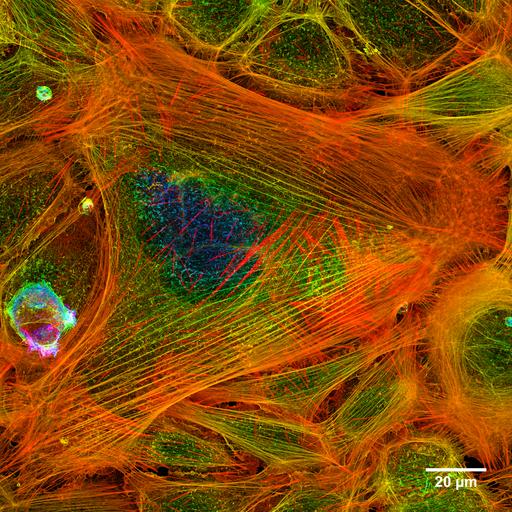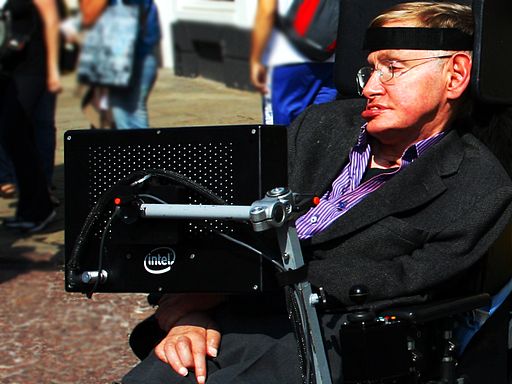Could decriminalization while keeping drugs illegal (reducing punishment, offering alternatives) beneficially replace the war on drugs?
If we agree on the success of Portugal’s decriminalization (minimal punishment) experiment, below is a set of charts prepared by Science15.com that may support (on a cost basis if not a humane basis) an abandonment of the “war” approach to drug control.
These charts compare Portugal’s all-drug decriminalization of certain possession levels with the U.S. marijuana-only possession laws, to show the possible scope a new drug policy could have.
If the U.S. could replicate Portugal’s results, how many drug-users might avoid prison terms?
1. Portugal saw a 39% reduction in drug-related incarcerations in 2011, over 2000.
2. If U. S. Marijuana-related prison terms were reduced by 39% in 2004, 17,748 marijuana users would have avoided incarceration.
3. The cost savings of removing 17,478 prisoners from U. S. prisons would be $279,648,000, using Maryland’s numbers.
These three estimates, although oversimplified, are shown in chart form below.
1. Portugal’s saw a 39% reduction in drug-related incarcerations, with only 5,500 or less arrests. Along with 6,000 citations, Portugal saw 11,500 drug-related actions in 2011:
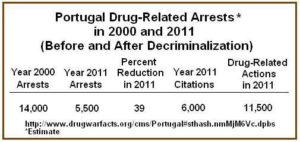 Source: Portugal’s decriminalization of drug-use
Source: Portugal’s decriminalization of drug-use
2. If U. S. Marijuana-related prison terms were reduced by 39% in 2004, 17,748 marijuana users would have avoided incarceration.:
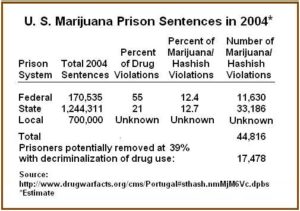
Source: U. S. incarceraton statistics
3. The cost savings of removing 39% (17,478 in 2004) of prisoners from U. S. prisons would be $279,648,000, using Maryland’s numbers.
Explanation: 17,478 x $16,000/prisoner (20,000 less 4,000 yearly cost per prisoner in Maryland ) = $279,648,000.
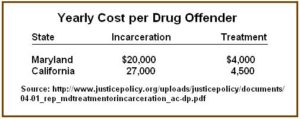
Source: Cost of incarceration in Maryland and California
To read about Brooklyn, New York’s successful Drug Treatment Alternatives to Prison program, visit the next page.


